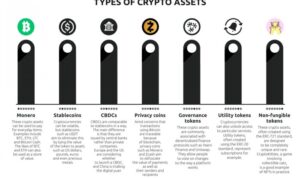When it comes to Crypto as a Payment Method Advantages and Challenges, buckle up for a wild ride through the world of digital currency. Get ready to explore the perks and hurdles of using cryptocurrencies for transactions in this modern era.
From decentralized systems to regulatory roadblocks, this topic delves deep into the realm of crypto payments, offering insights that will leave you craving for more knowledge.
Advantages of Using Crypto as a Payment Method: Crypto As A Payment Method Advantages And Challenges

Cryptocurrencies offer several advantages when used as a payment method. Let’s explore some of the benefits below.
Decentralization in Cryptocurrencies, Crypto as a Payment Method Advantages and Challenges
Cryptocurrencies operate on decentralized networks, meaning they are not controlled by any central authority like a government or bank. This decentralization provides users with more control over their funds and transactions, without the need for intermediaries.
Popular Cryptocurrencies for Payments
Some of the popular cryptocurrencies used for payments include Bitcoin, Ethereum, and Litecoin. These digital currencies have gained widespread acceptance and can be used for various transactions, both online and offline.
Faster Transaction Speeds
One of the key advantages of using cryptocurrencies for payments is the faster transaction speeds compared to traditional payment methods. Transactions can be processed almost instantly, especially for popular cryptocurrencies like Bitcoin, making them ideal for quick and efficient payments.
Lower Fees
Cryptocurrency transactions typically involve lower fees compared to traditional banking transactions. Since there are no intermediaries involved in the process, the fees associated with cryptocurrency transactions are minimal, saving users money in the long run.
Challenges of Implementing Crypto as a Payment Method

Implementing cryptocurrency as a payment method comes with its fair share of challenges that businesses need to navigate. From regulatory hurdles to security concerns, here are some of the key challenges faced when adopting crypto payments.
Regulatory Challenges
- The regulatory landscape surrounding cryptocurrencies is still evolving, leading to uncertainty for businesses on how to comply with varying laws and regulations.
- Government authorities worldwide have differing stances on cryptocurrencies, creating a complex environment for businesses to operate in.
- Compliance with anti-money laundering (AML) and know your customer (KYC) regulations can be challenging, as cryptocurrencies provide a level of anonymity that traditional payment methods do not.
Price Volatility
- The volatile nature of cryptocurrencies can pose a significant risk for businesses accepting them as payment, as the value of a cryptocurrency can fluctuate rapidly.
- Price volatility can result in discrepancies between the agreed-upon price for a product or service and the actual value received by the business, impacting profitability.
- Merchants may need to constantly adjust prices or convert cryptocurrencies to stable fiat currencies to mitigate the risk of value fluctuations.
Security Concerns
- Storing and using cryptocurrencies securely is crucial, as they are a prime target for cyberattacks due to their digital nature and irreversible transactions.
- Cryptocurrency exchanges and wallets are susceptible to hacking, leading to the loss of funds for businesses and individuals.
- Without proper security measures in place, businesses risk losing access to their funds or falling victim to theft.
Scalability Issues
- As the number of cryptocurrency transactions increases, scalability becomes a pressing issue, with networks struggling to process transactions quickly and cost-effectively.
- Popular cryptocurrencies like Bitcoin face scalability challenges, leading to slow transaction times and high fees during peak periods of network congestion.
- Scalability solutions such as layer 2 protocols are being developed to address these issues, but widespread adoption and implementation are still ongoing.





